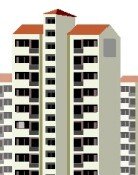[Op-Ed] Popular vs. Failing Schools
[Op-Ed] Popular vs. Failing Schools
Posted November. 05, 2009 08:02,
Washington D.C. has the famed educational reformer and school superintendent Michelle Lee, while New York has its three-term mayor Michael Bloomberg. Bloombergs predecessor, Rudolph Giuliani, aggressively mobilized police to halve the citys crime rate. Bloomberg is strong proponent of raising academic performance at public schools. Until Bloombergs inauguration in 2002, 42 percent of New York public school students had a basic level of academic performance in math. That figure jumped to 82 percent this year. The inter-racial gap in academic performance also declined. This is a result of a measure that rates schools based on academic improvement, and the principal is replaced if his or her school fails to make progress in two years. The school is also shut down if it fails to raise student performance in four years. The program has also granted a bonus of 3,000 U.S. dollars to outstanding teachers and 25,000 dollars to excellent principals.
The Seoul Metropolitan Office of Education has conducted a mock allocation of 95,643 students to enter high school through a school choice program next year. Students, however, will be unable to enter their school of choice. Schools set to fail in attracting their student quotas numbered as high as 14. The educational office said it will improve the educational environment at schools unable to meet student quotas, but stopped short of releasing the schools names. Students who choose such schools or are forced to attend them will suffer a disadvantage.
If the school choice program aims to boost educational competitiveness by promoting competition between schools and between teachers, giving incentives to schools preferred by students is a rational measure. A true school choice system can exist only if authorities increase the student quotas at popular schools and allow a maximum number of students to enter such schools by increasing their quotas. It would be a huge mistake if more financial support and better teachers go to schools shunned by students. Britains educational reform failed due to zombie schools that were never shut down despite having problems with low academic performance.
U.S. Education Secretary Arne Duncan shut down 61 schools in which students failed to perform at a basic academic level and opened 75 new schools while serving as Chicagos school superintendent for seven years. The University of Chicago has released a study saying most students who moved to other schools following school shutdowns showed no change in performance. Duncan countered by saying, The reason was that the students moved to a similar level of schools, and students who moved to better schools saw their performances improve. If Korean educational authorities continue to increase unlimited assistance to schools and keep confidential the names of schools avoided by students, this will waste taxpayers money. The government must use an educational policy that values the future of students rather than the livelihoods of teachers.
Editorial Writer Kim Sun-deok (yuri@donga.com)
Headline News
- Joint investigation headquarters asks Yoon to appear at the investigation office
- KDIC colonel: Cable ties and hoods to control NEC staff were prepared
- Results of real estate development diverged by accessibility to Gangnam
- New budget proposal reflecting Trump’s demand rejected
- Son Heung-min scores winning corner kick







